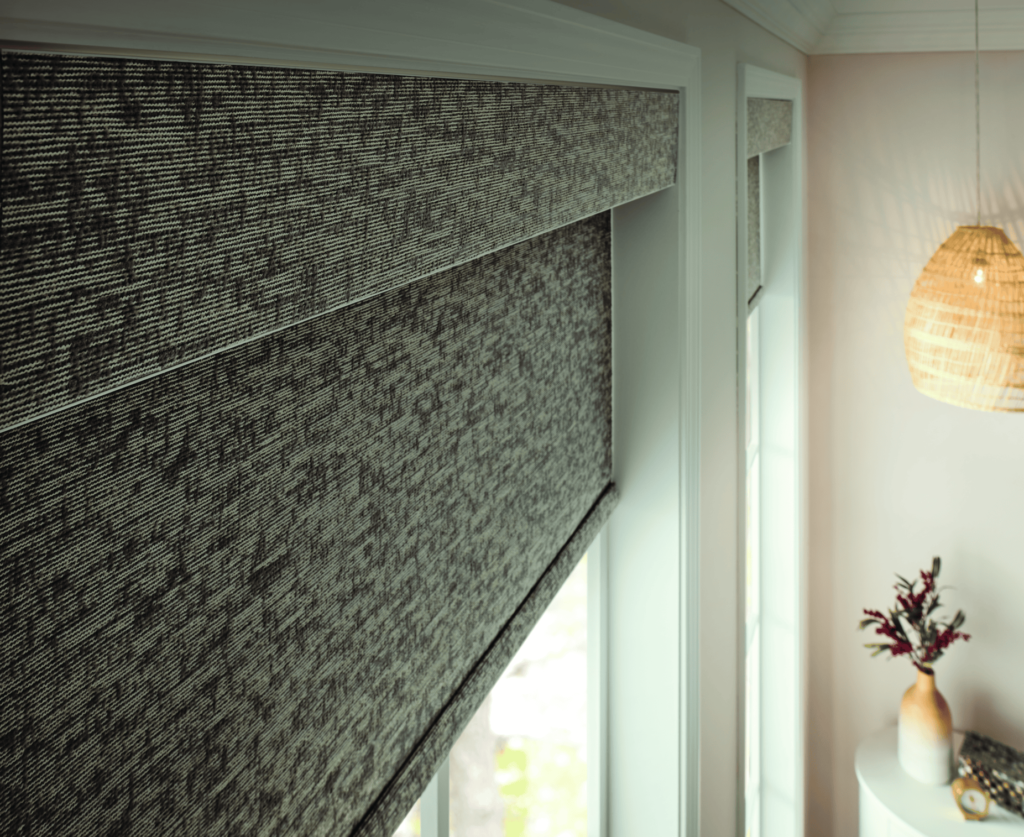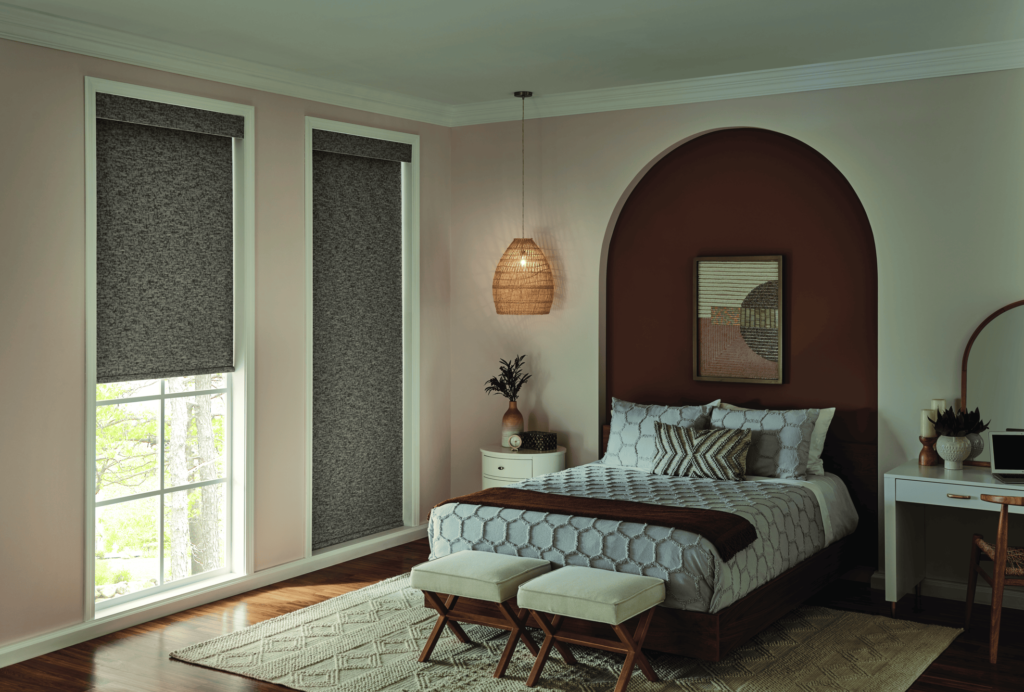Blackout Window Coverings: Essential Health Benefits
November 6, 2024

Blackout window coverings are a fantastic addition to any home, especially in urban neighborhoods with high levels of external light from streetlights, vehicles, and nearby buildings. These coverings provide total darkness, helping to improve sleep quality and overall well-being. But beyond darkness, they offer numerous health benefits that make them a worthwhile investment. Let’s explore five key ways blackout window coverings can enhance your life.
1. Improved Quality of Sleep
Quality sleep is essential for recovery after a long day of physical and mental activities. Our bodies need restful, uninterrupted sleep to rejuvenate and heal. Blackout shades and drapes significantly increase sleep quality by blocking out unnecessary light, allowing the body to produce more melatonin—a hormone that regulates sleep and the body’s circadian rhythm.
When melatonin production is optimal, you fall asleep faster and sleep more deeply, helping to prevent health issues such as:
- Anxiety and depression
- Hypertension
- Metabolic disorders
With blackout window coverings, you can experience deeper, more restful sleep, leading to better overall health.
2. Regulation of Circadian Rhythm
Our bodies follow an internal clock known as the circadian rhythm, which helps regulate when we sleep, wake, and even feel hungry. Irregular light exposure can disrupt this natural cycle, leading to fatigue, poor productivity, and difficulty sleeping. This is especially common for night-shift workers, who often struggle to keep a healthy circadian rhythm due to unusual sleep schedules.
Blackout window coverings for bedrooms help night-shift workers maintain a healthy circadian rhythm by blocking out sunlight during the day. They also help others by preventing artificial lights from vehicles, streetlights, and neighboring homes from disrupting their sleep cycles.
3. Support in Melatonin Production
When exposed to sunlight in the morning, our bodies produce cortisol, a hormone that energizes us for the day. As the sun sets, our bodies prepare to produce melatonin, which helps us fall asleep. Melatonin not only regulates sleep but also plays a crucial role in preventing diseases such as neurodegenerative conditions, including Alzheimer’s and Parkinson’s. It also has anti-aging properties that slow down tissue aging.
Since melatonin production peaks in complete darkness, blackout shades can enhance its secretion, leading to better sleep and potentially better health outcomes.
4. Reduced Risk of Sleep Disorders
In addition to improving melatonin levels, blackout window coverings help create an optimal sleep environment, which can reduce the risk of sleep disorders. Exposure to light at night is a primary cause of sleep disorders, including insomnia. Blackout shades minimize light exposure, helping to maintain natural melatonin levels and provide uninterrupted deep sleep.
If you suffer from insomnia, blackout shades can simulate nighttime conditions, helping you maintain a consistent sleep cycle and reducing symptoms of sleep deprivation.
5. Enhanced Noise Reduction
Noise from busy streets, vehicles, and construction can severely hamper sleep, causing stress, frustration, and even an increase in blood pressure. The extra-thick fabric of blackout window coverings not only blocks light but also helps reduce noise, creating a tranquil environment.
This noise reduction feature helps you maintain deep, restful sleep, which is essential for cardiovascular, metabolic, and cognitive health.
Conclusion
Blackout window coverings offer more than just darkness—they provide crucial health benefits that improve sleep quality, regulate circadian rhythms, and reduce the risk of sleep disorders. They also block unwanted light and reduce noise, creating a peaceful and restful environment. Whether you’re looking to achieve better sleep or reduce noise, blackout window coverings are a stylish and practical solution for enhancing your home’s comfort and your overall well-being.

